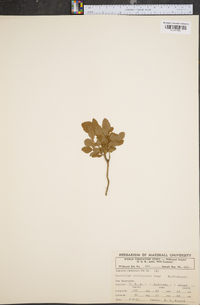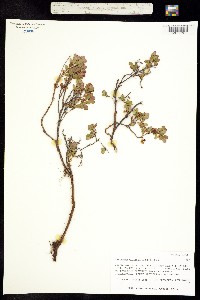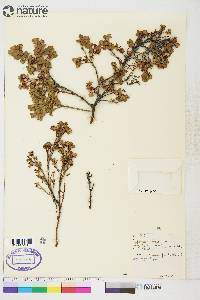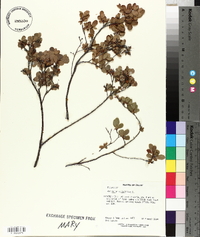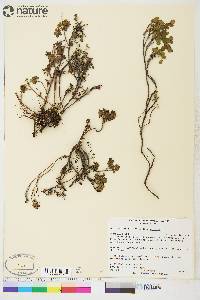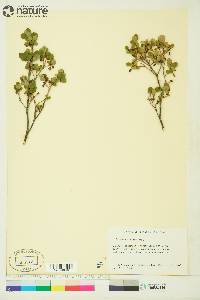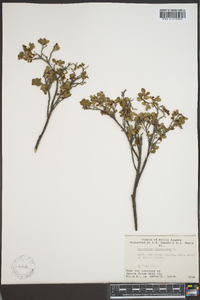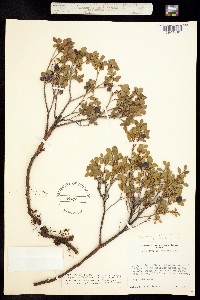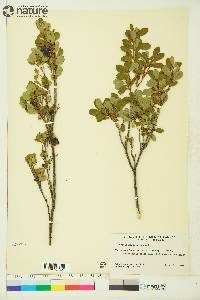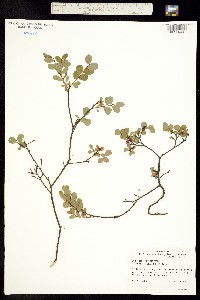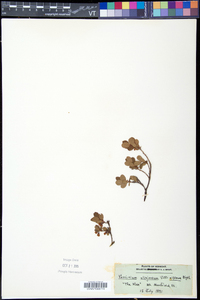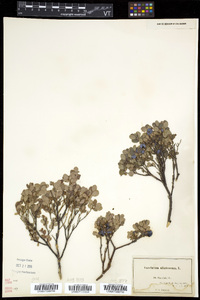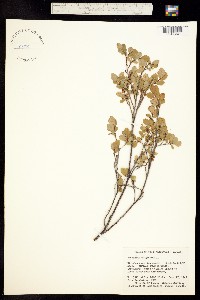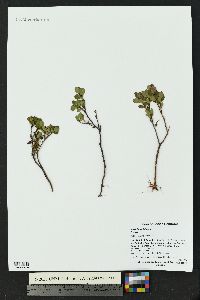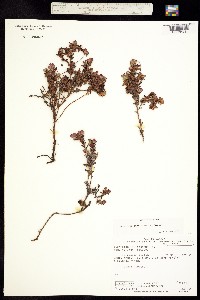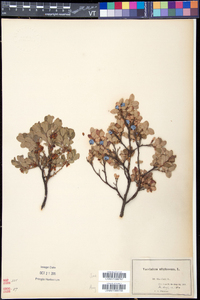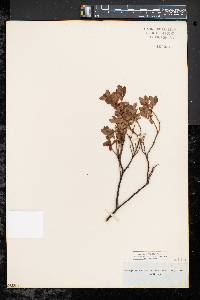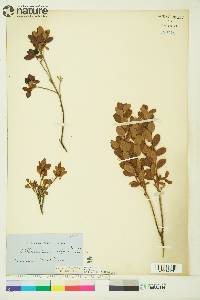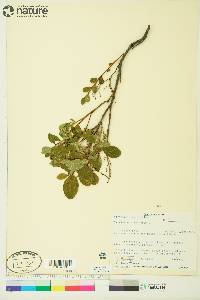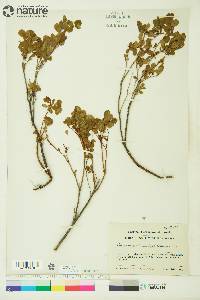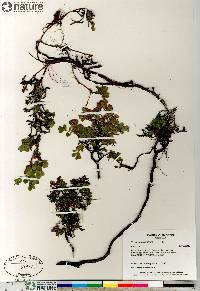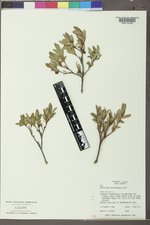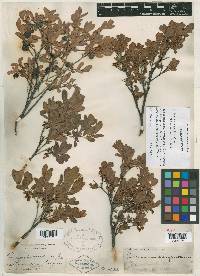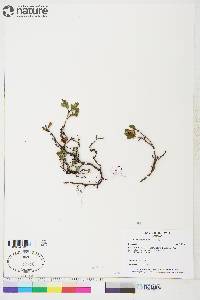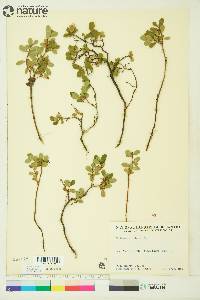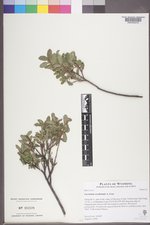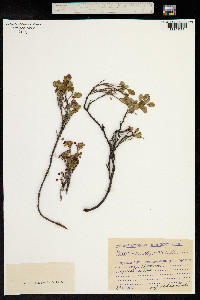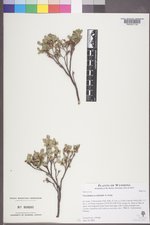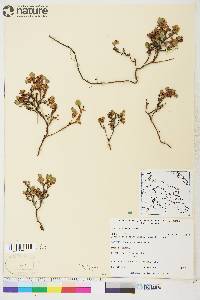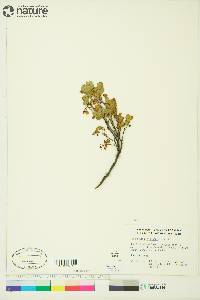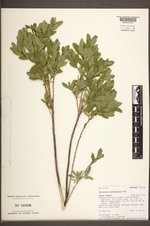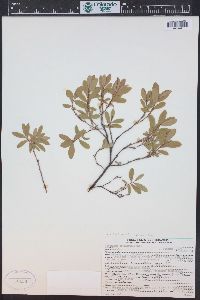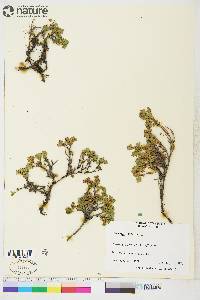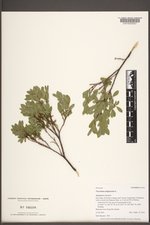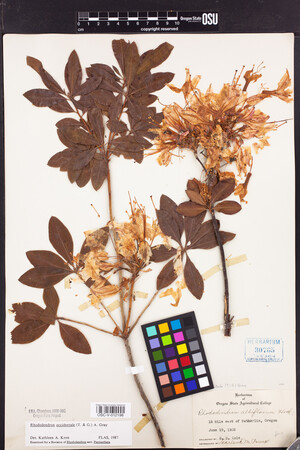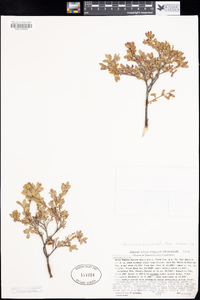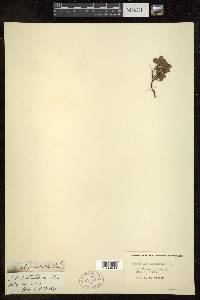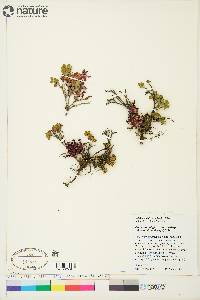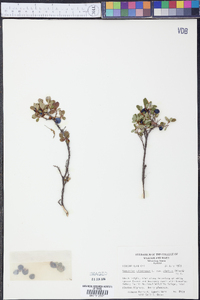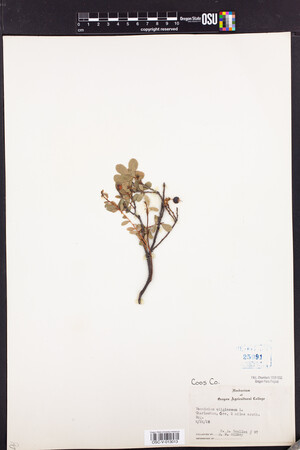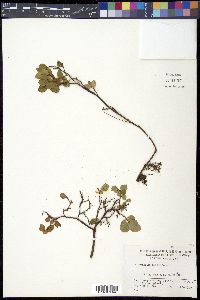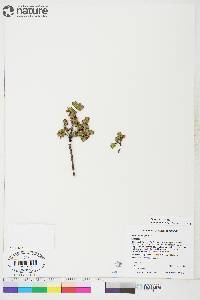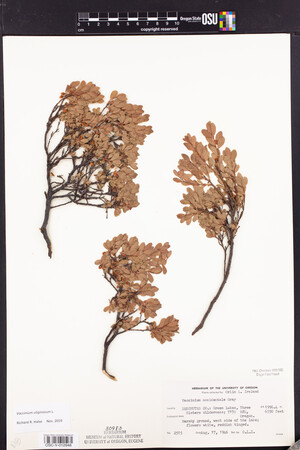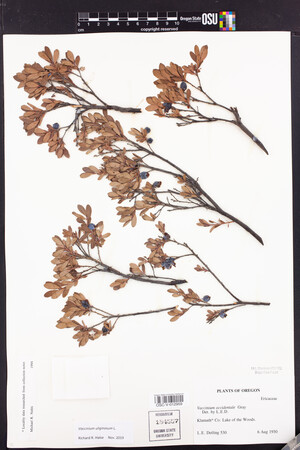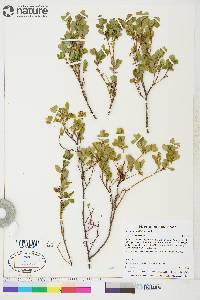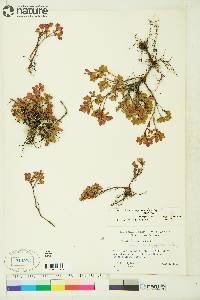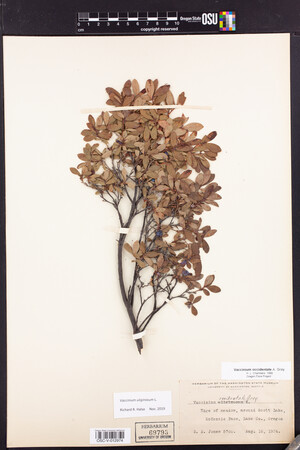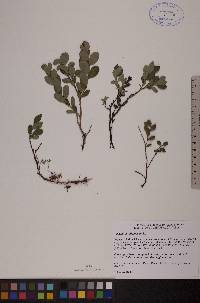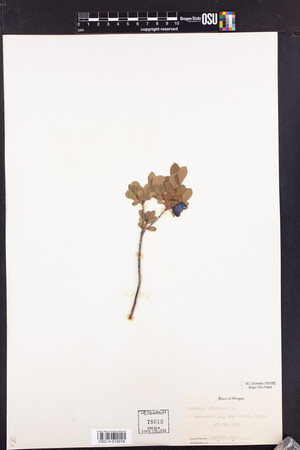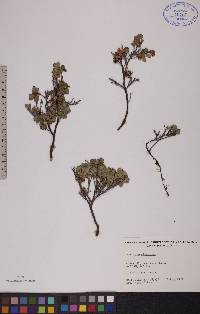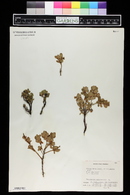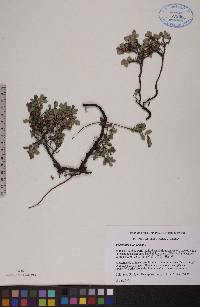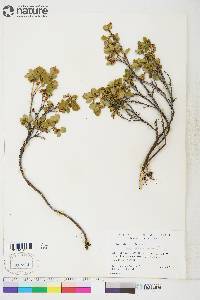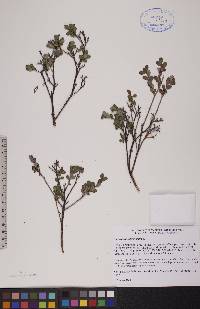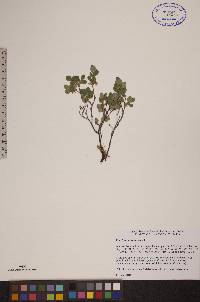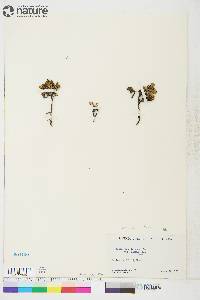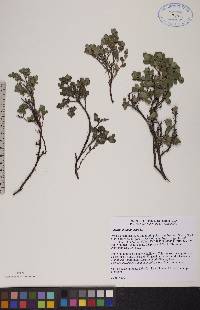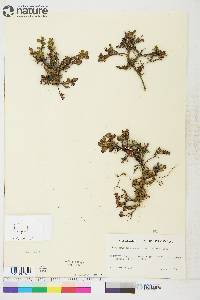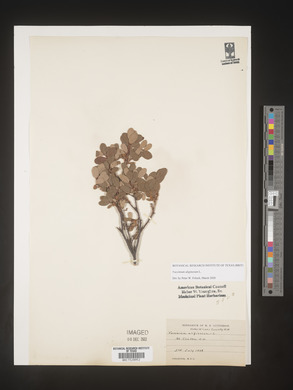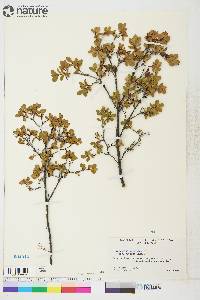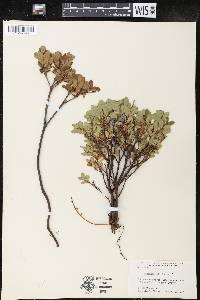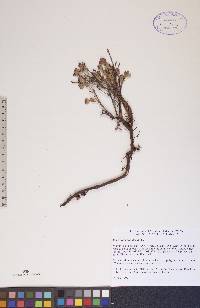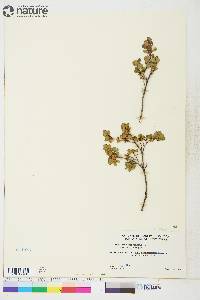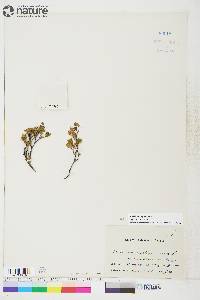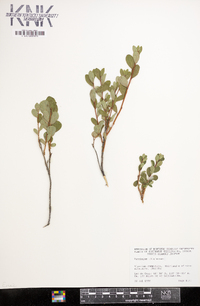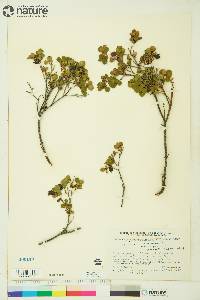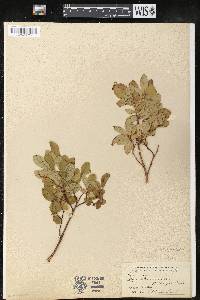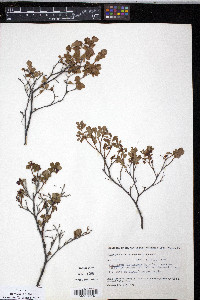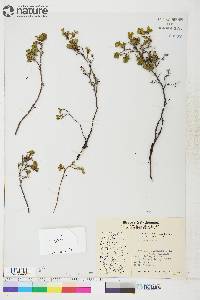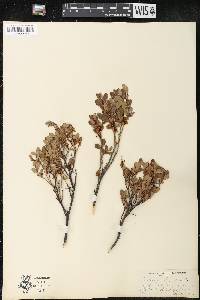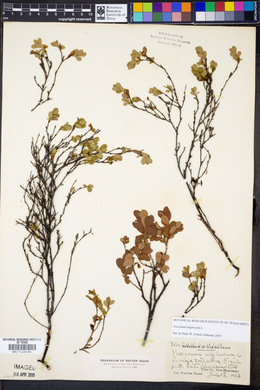
|
|
|
|
Family: Ericaceae
Alpine Blueberry
[Vaccinium gaultherioides, moreVaccinium occidentale A.Gray, Vaccinium uliginosum subsp. alpinum , Vaccinium uliginosum subsp. gaultherioides (Bigelow) S.B.Young, Vaccinium uliginosum subsp. microphyllum , Vaccinium uliginosum subsp. occidentale (A.Gray) Hultén, Vaccinium uliginosum subsp. pedris (Harshb.) S.B.Young, Vaccinium uliginosum subsp. pubescens (Wormsk. ex Hornem.) S.B.Young, Vaccinium uliginosum var. alpinum Bigelow, Vaccinium uliginosum var. occidentale (A.Gray) H.Hara, Vaccinium uliginosum var. salicinum (Cham. & Schltdl.) Hultén] |
Plants forming dense mats or open, extensive colonies; twigs of current season pale green, terete, glabrous or faintly puberulent, not verrucose. Leaf blades usually glaucous abaxially, green to glaucous adaxially, orbiculate, ovate, or obovate to narrowly elliptic, 8-14 × 3-7 mm, membranous, margins entire, surfaces often faintly puberulent, sometimes hairy throughout. Flowers: sepals usually distinct; corolla white to pink, 3-4(-5) mm, lobes 0.3-0.4 mm; filaments glabrous. Berries blue, 6-8 mm diam., glaucous. 2n = 24, 48, 72. Flowering Jun-Jul. Wet or dry acidic sites in boreal taiga, tundras, and alpine thickets and krummholz; 0-2200 m; Greenland; St. Pierre and Miquelon; Alta., B.C., Man., N.B., Nfld. and Labr. (Nfld.), N.W.T., N.S., Nunavut, Ont., P.E.I., Que., Sask., Yukon; Alaska, Calif., Idaho, Maine, Mich., Minn., Mont., Nev., N.H., N.Y., Oreg., Utah, Vt., Wash., Wyo.; n Eurasia. Vaccinium uliginosum is transcontinental in North America between 60° and 70° north latitude; farther north it is rare, especially in the Queen Elizabeth Islands. To the southwest, it is found as far as northern California and northwestern Utah. The summits of the White Mountains of New Hampshire form its southernmost limit in eastern North America. This wide-ranging plant shows considerable variation, notably in floral morphology. Subspecies have been recognized (cf. S. B. Young 1970); a review of morphological variation by H. J. Warr (1981) did not support the distinctiveness of infraspecific taxa.
Low, diffuse or matted, stoloniferous shrubs; lvs deciduous, firm, elliptic to oblong-obovate, blunt, entire; fls all or mostly 4-merous, in clusters of 1-4 from the axils of bud- scales, on pedicels 2-5 mm; sep ovate or triangular, 1 mm; cor pink, ovoid; anthers spurred; fr sweet, dark blue or black; x=12. Circumboreal, s. to n. N. Engl., n. N.Y., and n. Mich. June, July. Most of our plants belong to the circumboreal tetraploid var. alpinum Bigelow, often growing in bogs or muskeg, 1-3 dm, with lvs 10-25 mm and densely hairy on both sides, the frs 4-6 mm. (V. pubescens) In alpine sites we also have the diploid var. gaultherioides (Bigelow) Bigelow, occurring mainly from Greenl. and e. Can. to the high mts. of N. Engl., dwarf and tufted or matted, the glabrous or subglabrous lvs 5-10 mm and the fr 2-4 mm. (V. microphyllum) Gleason, Henry A. & Cronquist, Arthur J. 1991. Manual of vascular plants of northeastern United States and adjacent Canada. lxxv + 910 pp. ©The New York Botanical Garden. All rights reserved. Used by permission. |
This project was made possible in part by the Institute of Museum and Library Services [MG-70-19-0057-19].
Powered by Symbiota


